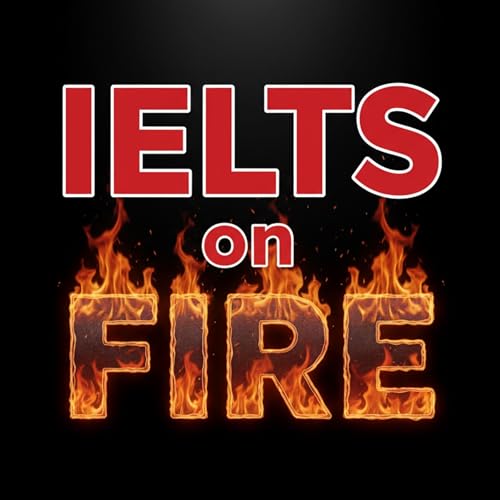Hey there, welcome to IELTS on Fire – your daily five-minute boost for better IELTS scores.
I’m Teacher Phil, your friendly IELTS mentor, and today we’re tackling something that makes even confident students a bit nervous: What should you do if you don’t understand the question in the Speaking test?
Trust me, even native speakers ask for clarification sometimes. So today, I’ll show you how to handle those moments naturally, keep your cool, and actually impress the examiner with your communication skills.
Let’s set your English on fire.
IELTS Speaking TipSo, think about this: You’re in the Speaking test, and the examiner asks a question. But… you miss a word, or you’re just not sure what they mean. What now?
Here’s the trick: It’s totally okay to ask for clarification. In fact, using natural phrases to check or clarify shows confidence and good communication.
Here are three native-level ways to do it:
- “Sorry, could you repeat that, please?”
- “I’m not sure I understood – could you say that another way?”
- “Do you mean…?” (And then you paraphrase what you think they asked.)
You don’t need to panic, and you definitely don’t need to guess. Just use one of these phrases with a calm, steady tone.
Model DemoLet’s put this into action. Imagine the examiner asks:
"Describe a time when you had to make a difficult decision."
But you didn’t catch the word ‘decision’, or maybe the whole question feels unclear.
You could respond like this:
“Sorry, could you repeat that, please?”
—or—
“I’m not sure I understood – did you mean a difficult choice I had to make?”
Notice how relaxed that sounds? You’re not apologizing too much, you’re not panicking. You’re just communicating like a real person.
Teaching & AnalysisLet me break it down.
First, all three phrases are polite and natural. You’re not just saying “What?” or looking confused. You’re taking control of the situation.
Second, these phrases do a few powerful things:
- They buy you a few seconds to think.
- They show you’re comfortable having a real conversation.
- They make you sound more fluent and confident, not less.
Here are three phrases you can steal for your next practice:
- “Sorry, could you repeat that, please?”
- “I’m not sure I understood – could you say that another way?”
- “Do you mean… (and then paraphrase)?”
Try mixing these in when you practice. It’s a small tweak that makes a big difference.
Quick Practice ChallengeAlright, your turn. Here’s a mini challenge.
Set a timer for one minute. Imagine you’re in the Speaking test, and you miss part of the examiner’s question. Practice saying each of these clarification phrases out loud, with a natural, friendly tone:
- “Sorry, could you repeat that, please?”
- “I’m not sure I understood – could you say that another way?”
- “Do you mean…?”
Say them a few times, switch up your tone, and get comfortable with them. The goal is to make them automatic so you don’t freeze in the real test.
After the podcast, give it a shot. Remember, fluency isn’t about being perfect – it’s about communicating smoothly, even when things get tricky.
That’s it for today’s IELTS on Fire. Keep practicing these phrases until they feel natural, and you’ll handle any Speaking test curveball with confidence.
Come back tomorrow for another five-minute boost. Until then, keep speaking up, keep practicing, and let’s set your English on fire.
 5 mins
5 mins 5 mins
5 mins 4 mins
4 mins 5 mins
5 mins 5 mins
5 mins 5 mins
5 mins 4 mins
4 mins 5 mins
5 mins
